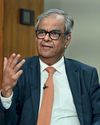
In 2004, the board of Tata Steel convened at the group’s iconic Bombay House headquarters for what seemed like a regular meeting. It was soon after the buyout of Singapore’s NatSteel and was viewed as an important step in the company’s journey of going global. But one person did not seem too pleased: Ratan Naval Tata (RNT), Chairman of Tata Sons. “Why are we making these small acquisitions?” The asked about a deal worth a sizeable $285 million. It was a clear indication that RNT desired to make the company a global force to reckon with. “Let’s do something bigger,” he said then. Three years later, it became clear just what RNT meant. Tata Steel acquired Corus, which was four times its size, for a whopping $12 billion after an intense bidding battle. With that one stroke, it became the largest outbound buyout by an Indian company. That and other foreign acquisitions made clear that RNT’s vision stretched much beyond India’s borders.
But it was not always so. By the late 1980s, there was speculation about the successor of the legendary J.R.D. Tata, who had headed the group for half a century. Many names did the rounds, including that of Nusli Wadia, the promoter of Bombay Dyeing, apart from several professionals. At that point, RNT was heading Tata Industries. It had not been a remarkable career—before Tata Industries he had helmed NELCO, which manufactured electronics—but he was J.R.D.’s preferred choice.
When RNT entered the corner office at Bombay House in March 1991, he could not have known that gaining acceptance within the group would be difficult. He had to weather many a storm, from a showdown with unions to bringing powerful ‘satraps’—who headed some group firms—to heel. He also consolidated his hold over the group, which operated like disparate companies glued together only by the personal charisma of J.R.D. Tata.
This story is from the {{IssueName}} edition of {{MagazineName}}.
Start your 7-day Magzter GOLD free trial to access thousands of curated premium stories, and 9,000+ magazines and newspapers.
Already a subscriber ? Sign In
This story is from the {{IssueName}} edition of {{MagazineName}}.
Start your 7-day Magzter GOLD free trial to access thousands of curated premium stories, and 9,000+ magazines and newspapers.
Already a subscriber? Sign In

"Inaction is worse than mistakes"
What was the problem you were grappling with?

TEEING OFF WITH TITANS
BUSINESS TODAY GOLF RESUMES ITS STORIED JOURNEY WITH THE 2024-25 SEASON OPENER IN DELHI-NCR. THERE ARE SIX MORE CITIES TO COME

AI FOOT FORWARD
THE WHO'S WHO OF THE AI WORLD GATHERED AT THE TAJ MAHAL PALACE IN MUMBAI TO DELIBERATE THE TRANSFORMATIVE IMPACT OF AI ON INNOVATION, INDUSTRIES, AND EVERYDAY LIFE.

Decolonising the Walls
ART START-UP MAAZI MERCHANT IS ON A MISSION TO BRING INDIA'S FORGOTTEN ART BACK HOME

"I'm bringing Kotak under one narrative, one strategy, one umbrella”
Ashok Vaswani is a global banker who spent most of his career overseas at institutions like Citi Group and Barclays, among others.

CHOOSING THE CHAMPIONS
The insights and methodology behind the BT-KPMG India's Best Banks and NBFCs Survey 2023-24.

'INDIA IS AT AN EXTREMELY SWEET SPOT'
The jury members of the BT-KPMG Survey of India's Best Banks and NBFCs discuss developments in the banking sector and more

FROM CRISIS TO TRIUMPH
Dinesh Kumar Khara stewarded SBI through multiple challenges during his tenure, while ensuring that profits tripled, productivity soared, and the bank consolidated its global standing

AT A CROSSROADS
BANKS ARE FACING CHALLENGES ON BOTH SIDES OF THE BALANCE SHEET-ASSETS AS WELL AS LIABILITIES-WHICH ARE PUTTING PRESSURE ON MARGINS.

EXPANSIVE VISION
Bajaj Finance, an outlier in terms of digitisation, faces stiff competition. But it continues to expand its reach